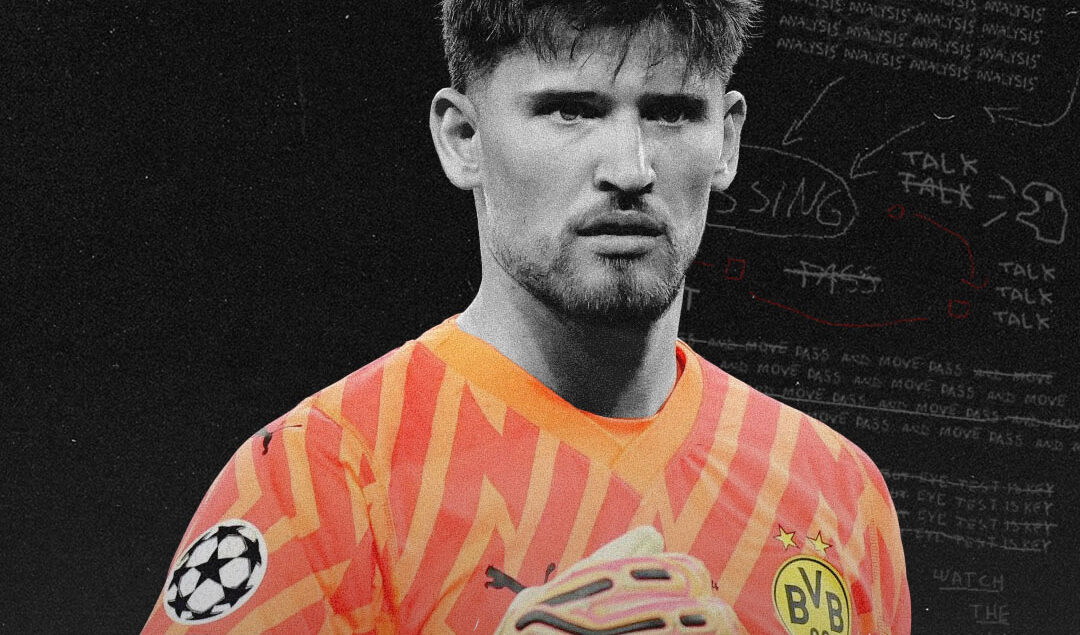The Tactical Tragedy of Almosts: Dortmund Vs Leipzig
Let me start by saying: I didn’t plan to spend my Saturday night watching two Bundesliga sides play football like a PhD thesis on “The Futility of Trying.” Yet here we are — me, my cold noodles, and ninety minutes of what I can only describe as German engineering having an emotional breakdown.
Dortmund versus Leipzig. The headline promised “a tactical duel.” What we got was a gloriously structured mess — the kind of match that convinces you football was invented by philosophers who ran out of patience halfway through.
Formations, or the IKEA Manual of Football
Dortmund lined up in a 3-4-2-1 since apparently no one has the courage anymore to play with a simple back four. They rotated players like a Tinder addict trying to convince himself it’s about chemistry, not commitment: Nico Schlotterbeck here, Felix Nmecha there, and somewhere on the bench, Jude Bellingham’s ghost silently judging them.
Leipzig, meanwhile, arrived with their own 4-3-3 formation because when in doubt, be symmetrical. It’s like ordering vanilla ice cream when the menu screams pistachio.
When Pressing Angles Go on Strike
Dortmund had the ball. Leipzig pressed. Or at least, they tried. Their striker, Romulo, launched himself at Schlotterbeck from roughly the same distance Moses parted the Red Sea. By the time he got there, the ball had packed its things and relocated to a better postcode.
Johan Bakayoko: The Belgian Sensation Driving PSV’s Perfect Start
See, pressing is like flirting — it only works if you get close enough. Leipzig, however, were pressing like shy teenagers: enthusiastic from afar, catastrophic up close. This generous distance allowed Dortmund’s wing-backs to thrive. Passes zipped diagonally, spaces opened, and somewhere in the chaos, Yan Couto started believing he was Cafu reincarnated.
How to Lose Your Man and Your Dignity
Leipzig’s right side was a tragicomedy. David Raum couldn’t step forward because Karim Adeyemi was lurking wide like a mischievous toddler, while Antonio Nusa was asked to track back — a task he approached with the enthusiasm of a teenager asked to wash dishes.
Yan Couto, Dortmund’s wing-back, therefore had the time and space to contemplate life choices mid-dribble. Marcel Sabitzer, ever the escape artist, repeatedly wriggled free of Christophe Baumgartner’s clingy marking, like someone leaving a bad date under the pretense of a bathroom break.
Still, for all of Dortmund’s cleverness, they suffered from a case of “good idea, poor execution.” Adeyemi was too wide, too isolated and Serhou Guirassy’s link-ups were about as consistent as Lagos electricity.
When Momentum Wore Red and White
Then Leipzig remembered they were Leipzig. They began launching long balls into the half-spaces like they were auditioning for an old-school Premier League highlight reel. One of those chaotic moments led to Baumgartner’s goal — a neat finish that punished Dortmund’s allergic reaction to tracking midfield runners.
It was 1–0, and somewhere in the crowd, a Dortmund fan sighed like a man who’s seen this movie before and still refuses to unsubscribe from the sequel.
Dortmund’s Existential Crisis, Volume 37
Conceding made Dortmund do what Dortmund always do: pass sideways like they’re allergic to progress. Raum followed Couto so closely it bordered on a restraining order, and Schlotterbeck’s horizontal passes could have been filed under “How Not to Escape a Press.” It wasn’t football, it was a support group for lost wing-backs.
Left Wing Therapy Session
Meanwhile, on the left, Daniel Svensson was out here playing both full-back and therapist. He kept trying to progress play, but his teammates were positioned like introverts at a networking event ; everyone close enough to seem involved, but far enough to avoid commitment.
And then, irony being football’s favorite hobby, it was Couto — the overworked wing-back — who equalized. 1–1. Justice had finally been served.
Aftermath: Tactical Chess or Just Tired Men Kicking a Ball?
The rest of the game was football’s equivalent of a group project where everyone contributes just enough to avoid blame. Leipzig’s structure — Raum inside, Nusa wide — caused mild confusion, while Dortmund’s press occasionally worked but mostly resembled performance art. Guirassy kept drifting out wide, presumably to avoid Willi Orban’s aggressive attention, and Adeyemi ran fast but thought slow. There were half-chances, fouls that pretended to be tactical and tactical tweaks.
It ended 1–1. A scoreline so German in its symmetry it probably files its taxes on time. Both managers left looking like men who’d just explained crypto to their parents. Dortmund can claim moral victory for surviving a midweek hangover. Leipzig can claim intellectual superiority for looking structured while doing nothing remarkable.
And me? I’m just proud I stayed awake.
Because sometimes football isn’t about winning, or tactics, or even pressing angles — it’s about finding meaning in chaos, beauty in mediocrity, and entertainment in watching twenty-two grown men collectively forget how to finish.
By Tobi Peter / @keepIT_tactical
Featured Image: @GabFoligno / Mike Egerton – PA Images
